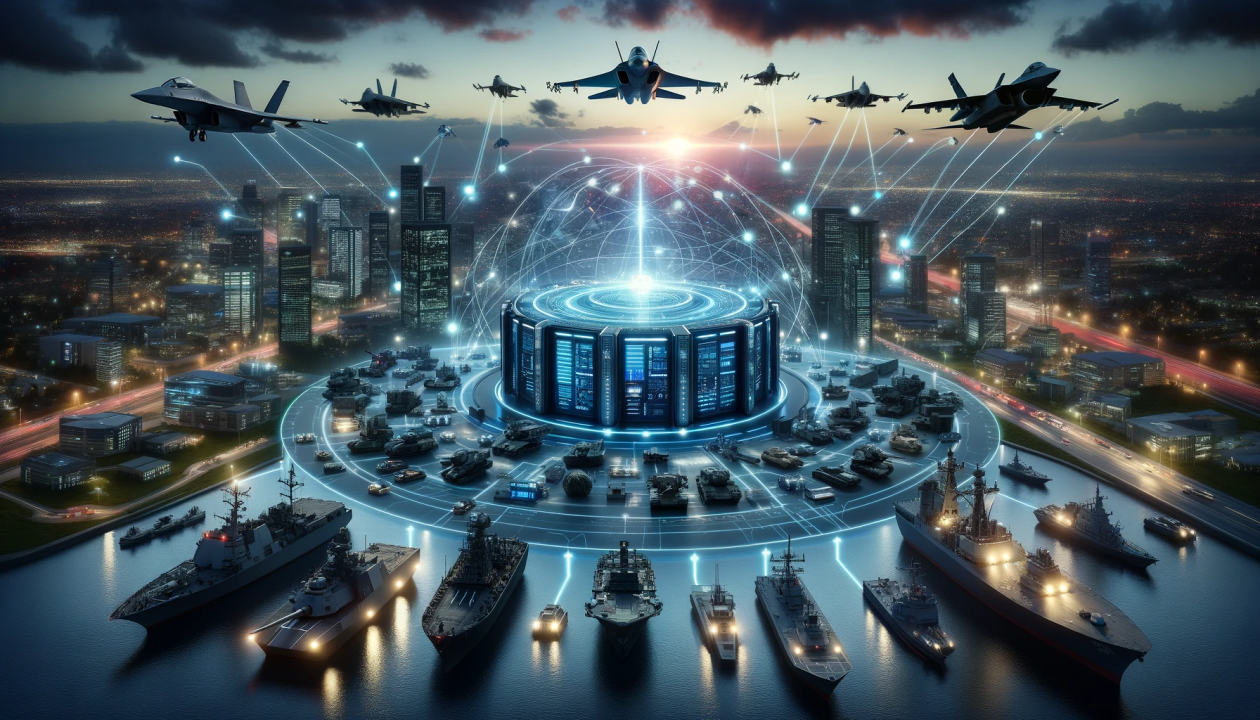In the rapidly evolving landscape of military technology, AI in command and control systems is emerging as a game-changer. As we delve into the 21st century, the integration of artificial intelligence into these systems is not just a possibility; it is becoming an essential component of modern warfare. This transformation is reshaping how military operations are conducted, enhancing efficiency, and providing unprecedented strategic advantages.

The Evolution of Command and Control Systems
Command and control systems have been the backbone of military operations for decades. Traditionally, these systems were reliant on human input for decision-making processes. However, with the advent of AI, there has been a significant shift. AI technologies are now being integrated to automate and optimize these systems, making them more efficient and effective.
Historical Context
The concept of command and control has its roots in the early military strategies where leaders relied on direct communication with their subordinates to execute plans. Over the years, technological advancements have introduced new tools and methods, but the core principle of centralized decision-making remained unchanged until the introduction of AI.
The Role of AI
AI plays a crucial role in modernizing command and control systems by providing intelligent insights, predictive analytics, and real-time data processing. This allows military leaders to make informed decisions quickly and accurately, transforming the way missions are planned and executed.
Key Benefits of AI Integration
The integration of AI in command and control systems offers several key benefits that enhance military capabilities. Here are some of the most significant advantages:
1. Enhanced Decision-Making
With AI, commanders can access real-time data analysis, allowing for quicker and more accurate decision-making. This is crucial in dynamic environments where rapid responses are necessary.
2. Improved Communication
AI-driven systems facilitate seamless communication between different units, ensuring that everyone is on the same page and reducing the risk of miscommunication during critical operations.
3. Predictive Analytics
AI can analyze vast amounts of data to identify patterns and predict potential threats. This proactive approach enables military forces to prepare and respond effectively to various scenarios.
4. Resource Optimization
By analyzing data on resource allocation and logistics, AI helps in optimizing the use of resources, reducing wastage, and ensuring that supplies are available where and when they are needed.
Challenges and Considerations
While the benefits of AI in command and control systems are undeniable, there are also challenges and considerations that need to be addressed:
Ethical Concerns
The use of AI in military applications raises ethical questions regarding autonomy and decision-making. Ensuring that human oversight remains a part of the process is essential.
Security Risks
AI systems can be vulnerable to cyber-attacks, which could compromise sensitive information and disrupt operations. Implementing robust security measures is paramount.
Data Privacy
As AI systems rely on vast amounts of data, ensuring the privacy and protection of this data is a critical concern that must be addressed to prevent misuse.
Future Prospects
The future of AI in command and control systems looks promising. Continued advancements in AI technology will likely lead to even more sophisticated systems that can handle complex tasks with minimal human intervention.
Integration with Emerging Technologies
The integration of AI with other emerging technologies, such as augmented reality and autonomous systems, will further enhance the capabilities of command and control systems, providing new ways to approach military operations.
Global Impact
As more countries adopt AI in their military strategies, the global impact will be significant. This shift will likely lead to changes in international relations and defense policies.
Conclusion
In conclusion, AI in command and control systems is revolutionizing modern warfare. By enhancing decision-making, improving communication, and optimizing resources, AI is providing military forces with a strategic edge. However, it is crucial to address the challenges and ethical concerns associated with its use to ensure that this technology is employed responsibly and effectively.

FAQ Section
What is the role of AI in modern military operations?
AI plays a vital role in enhancing decision-making, improving communication, and providing predictive analytics in modern military operations.
How does AI improve decision-making in command and control systems?
AI provides real-time data analysis, allowing commanders to make informed decisions quickly and accurately.
What are the ethical concerns related to AI in military applications?
Ethical concerns include the autonomy of AI systems and the need for human oversight to ensure responsible use.
For further reading on the impact of AI in military operations, check out this informative article on AI technology for defense.

